DIRECTING MOVIES: The 4-Year Theory vs 2-Day Method
by Dov S-S Simens on February 24, 2017
SO YOU WANT TO DIRECT.
Get a script. Pick a location. Cast your actors. Get a Camera. Hit the On-Button. Tell the actors to talk. Wait 90-minutes. Say “Cut”. You got a movie… Why make it difficult?
 (Cameras are cheap. Actors are everywhere. Who doesn’t have a script. So, if you want to direct…then direct.)
(Cameras are cheap. Actors are everywhere. Who doesn’t have a script. So, if you want to direct…then direct.)
You want to direct and of course there is more to it but first… Let me “Make Your Day” (thank you Clint) and give you information on the two basic academic options to learn directing for you to select.
FIRST: the traditional 4-Year method.
SECOND: the alternative 2-Day method.
But first some background…
DIRECTING MOVIES: 2 SCHOOLS OF DIRECTING
If you have the thought of being a director… then direct. Get a script. Get a Camera. Hit the On-Button. Tell the actors to talk.
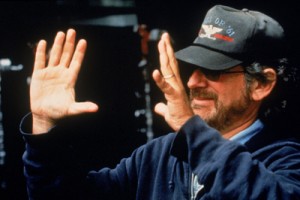 (“Spielberg truly understands story & structure but also the nuts-n-bolts of where to place the camera, what lens to use, difference between a dolly-in and a zoom-in, how to get a Master, etc… The nuts-and-bolts.”)
(“Spielberg truly understands story & structure but also the nuts-n-bolts of where to place the camera, what lens to use, difference between a dolly-in and a zoom-in, how to get a Master, etc… The nuts-and-bolts.”)
Directing is definitely a great career… but if you want-in you need to learn the basics…. and other than seeking a Mentor (highly useless) or making a short (not good choice, read why in another post) there are only 2 educational choices… the 4-year traditional school or the 2-day alternative school.
With respect to the 4-year traditional school I read a review copy of a new book (updated), with the words “Introduction to the Craft of Directing” in the title, which is used as a textbook for Directing classes at both USC & NYU.
And in my humble opinion it is almost useless for very little applies to directing your 1st Independent Feature Film… but it does apply to a big-budget Studio Feature Film… which you are not directing for your 1st feature film.
The book reads well, is highly locquacious, appears logical and will get the author a tenured teaching gig and a spot on the Charlie Rose show critiquing the Oscars… but the theory espoused (see below) is of little assistance, in the real-world, when directing your 1st feature film with limited funds, an inexperienced crew, limited time and handling actors with romantic studio feature theory.
Lets compare the 4-Year and 2-Day Schools.
THE 4-YEAR ($250,000) TRADITIONAL FILM SCHOOL
Below are 7 directing concepts in a textbook (used by USC & NYU) that are applied to directing under the term “Modern Trends”… and tell me if you agree on any of them…
….. (1) Plots are old fashioned. A story with a plot is contrived, artificial and boring.
(“Huh? Plot is contrived?”)
….. (2) When you start writing a script, just begin at the beginning without trying to plan how it will end. Planning isn’t necessary. Its much better to be spontaneous. Improvise as you go along.
(“Huh? Just Fake it. Every building has a blueprint. Ever journey has a roadmap. You just don’t fake it.”)
 (“Rope” was directed by Hitchcock with one fluid master shot… I guarantee you he planned & storyboarded every single every single setup… and if you would have told him “planning isn’t necessary” he’d throw you off the set.”)
(“Rope” was directed by Hitchcock with one fluid master shot… I guarantee you he planned & storyboarded every single every single setup… and if you would have told him “planning isn’t necessary” he’d throw you off the set.”)
….. (3) The most boring thing of all is to be obvious. It’s much more interesting to be ambiguous. Leave it to the audience to work out what you mean. Why does everything have to be explained?
(“Huh? Audiences don’t come to figure things out… they come to be entertained.”)
….. (4) Ideas and issues are what interests me. That’s where I like to start: from an idea. I don’t really care about the character so much.
(“Huh? Tell the story with boring, one-dimensional characters.” Further Hollywood always says, “You got a message…Call Western Union”.)
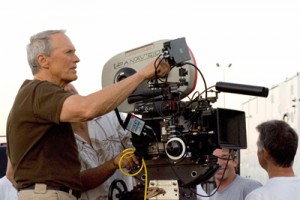 (Tell Eastwood you want all the characters in your movie to be flat and one-dimensional and he’ll say “Make My Day”.)
(Tell Eastwood you want all the characters in your movie to be flat and one-dimensional and he’ll say “Make My Day”.)
….. (5) I think the most interesting theme nowadays is alienation. That’s what’s true to life because everyone is alienated nowadays. A character that wants to do things, or who has something he wants to achieve is somehow phoney, or corny.
(“Huh”. A Character that wants to do things is phoney. I ain’t gonna respond to this…”)
….. (6) I like symbolism. I don’t see the point of characters that are realistic. (“I wanna scream”) It’s much more interesting when they are abstract.
(“Huh?” “Huh” and “Double-Huh”)
….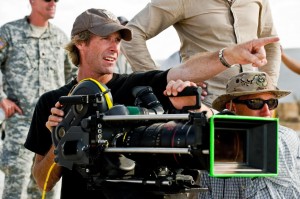 . (“Symbolism….Shmimbolism. Talk to Michael Bay about symbolism in “Transformers 1, 2, 3, 4, 5, 6, 0r pick-a-number”.”)
. (“Symbolism….Shmimbolism. Talk to Michael Bay about symbolism in “Transformers 1, 2, 3, 4, 5, 6, 0r pick-a-number”.”)
(7) I like to play with scenes of fantasy rather than reality. I like dream sequences (“Hey, keep a pencil & notepad by your bed. Wakeup during the dream. Jot it down. Type it into 90-120 pages. Now direct it.”) and flashbacks. It’s more interesting when you can play around with time.
(“Huh?” “Play around with time? Flashbacks and Flash Forwards are expensive and not doable on Low-Budgets…”)
These Director Concepts, called the 7 Modern Trends are taught at 4 year schools at a cost of $250K.
(“Someone poke my eyes out.”)
Now the 2-Day Film School method.
THE 2-DAY ($89-$289) ALTERNATIVE FILM SCHOOL
Lets get down to some practical nuts-n-bolts, that are easy to understand, that are part of my alternative 20-Hour (Live, DVD, Streaming) where I spend a solid 3 Hours on how-to direct… and you walk away saying “I get it”.
….. (1) DIRECTING THE STORY: Get the great script. Keep It Simple. 90-pages. 1-3 Locations. 40-50 Scenes & block out 40-50 scenes….which you will learn how-to do in 15-minutes.
….. (2) DIRECTING THE PRODUCER: Get him/her enough story to find $20,000 to $300,000 independently to make a movie…. which you will learn how-to do in 25-minutes.
….. (3) DIRECTING THE BUDGET: With $20-$300K you can only afford a 1-3 week shoot… Direct a 1-week Shoot with 16-18 hour workdays, or a 2-week Shoot with 15-16 hour workdays or a 3-week Shoot with 12-15 hour workdays… which takes only 30-minutes to teach.
….. (4) DIRECTING THE SCHEDULE: With a 1-3 week shoot. At the most you’ll have is 18 shooting days. With a 90-page script and an 18-day shoot you must direct (aka: get-in-the-can) 5 pages/day or 1-page every two hours… which you will know learn in only 14-minutes.
….. (5) DIRECTING THE CAMERA: First get a Master Shot. Then get two Over-The-Shoulder Medium Shots. Then get your Close-ups & Cutaways and before you leave the location… Get an Establishing Shot. … To learn how to direct a Master, two Mediums, an Establishing Shot and 7-8 Close-ups… only takes 15-20 minutes.

 (Both the STREAMING & DVD FILM SCHOOL give the true directing nuts-and-bolts in a little less than 3 hours… www.WebFilmSchool.com)
(Both the STREAMING & DVD FILM SCHOOL give the true directing nuts-and-bolts in a little less than 3 hours… www.WebFilmSchool.com)
….. (6) DIRECTING THE LENS: For Master Shots use a 18mm-25mm Lens. For Medium Shots use 30mm-50mm Lens. For Close-ups use 70mm-100mm Lens. For Establishing Shots use a wide-angle lens unless restricted within the confines of solid walls that limits movement… you will learn in only 10-12 minutes.
….. (7) DIRECTING THE ACTORS: Get a great Casting Director who gets you 10 great actors for every part at the casting session, then direct 1 CattleCall and two Callbacks and pick the best actor for each part…that when you say “Action” he/she does what you want him/her to do. If not, say “Back to Position one. Lets try it again (pause). Action.”… Casting the actors is much easier than thought and it only takes 30-40 minutes to learn.
….. (8) DIRECTING THE SHOOT: For a 3-week shoot, you must get 5 pages in-the-can per day. For a 12-hour day, with one-hour for lunch and one-hour for early morning startup, you have 10 hours of daylight left to get one-page in-the-can every two hours… this only takes 18-20 minutes to understand.
….. (9) DIRECTING THE LIGHTS: First get your Key Light set. Next get your Back Lights set. Finally get you Fill Lights set. Now look into the camera’s eyepiece; and if you can see the actor’s eyes, without him blinking; and in his eyes you see a little twinkle. Voila. Say Action & get the shot… Directing the Gaffer (Lighting Director) will take 15-20 minutes to understand.
….. (10) DIRECTING THE EDIT: In a Low-Budget film you are also usually the Post-Production Supervisor… Thus, direct the Picture Editor. Next, direct the Sound Editor. Next, direct the ADR. Next, direct the Foley. Now, direct the Mixer. Next, Direct the M&E Engineer. Now, Direct the Colorist and upon Directing the Producer to pay everyone you now have a finished film…. The steps of Post-Production, which is a 10-15 week period in real time, only takes 35-45 minutes to teach.
SO YOU WANT TO DIRECT!
OK, if you want to direct… which is a great career… then do it but ask yourself “is it better to spend $250,000 at a 4-year traditional film program or $289 at a 2-day alternative film program.”
Don’t get me wrong…4-year traditional film schools like NYU, UCLA and USC are great film schools but “are they worth 4-years and $250,000 to make a couple of shorts?”
Please ponder this question and I hope you choose the 2-Day Film School, and then, instead of making a short, you, with the money saved, instantly direct a 90-page, low-budget feature film.
Happy Filmmaking…
Dov Simens / Creator DVD, 2-Day & Streaming Film Schools
XXXXXX
16-HOUR (live, DVD, On-Demand) FILM SCHOOL
Want facts not theory… Then my Film Schools ($89-$389) are perfect for you.
Enroll. Graduate. Write. Produce. Direct.
Next “HOLLYWOOD (2-Day) FILM SCHOOL” sessions are April 8-9, 2017 or August 19-20, 2017.
Keep Up to date…
Join our e-mail list.
http://webfilmschool.us10.list-manage.com/subscribe/post?u=313d0b336735c6d5fbf1a8e9d&id=2c55446523
*** NO-BULL ***




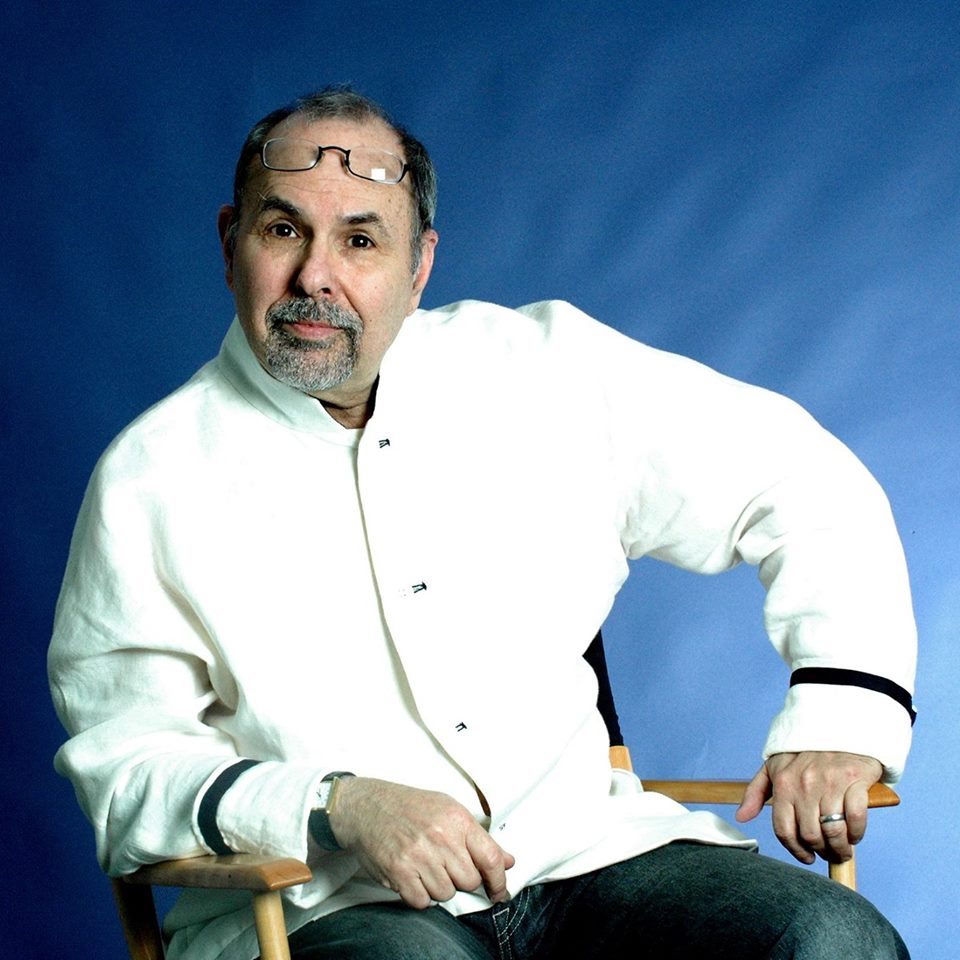
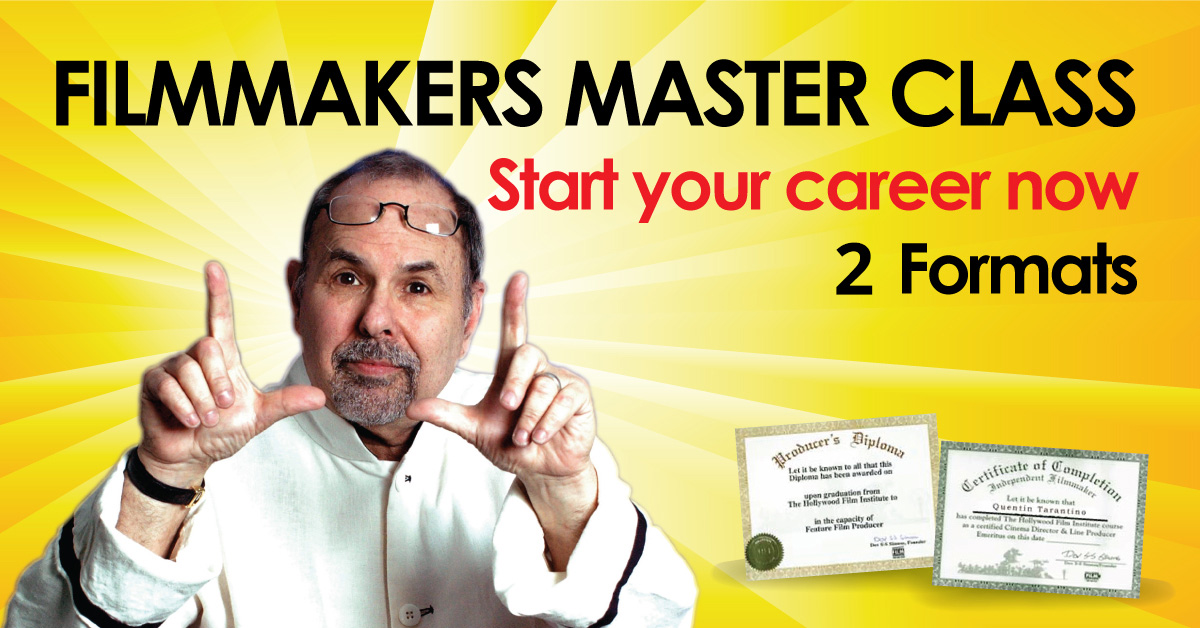

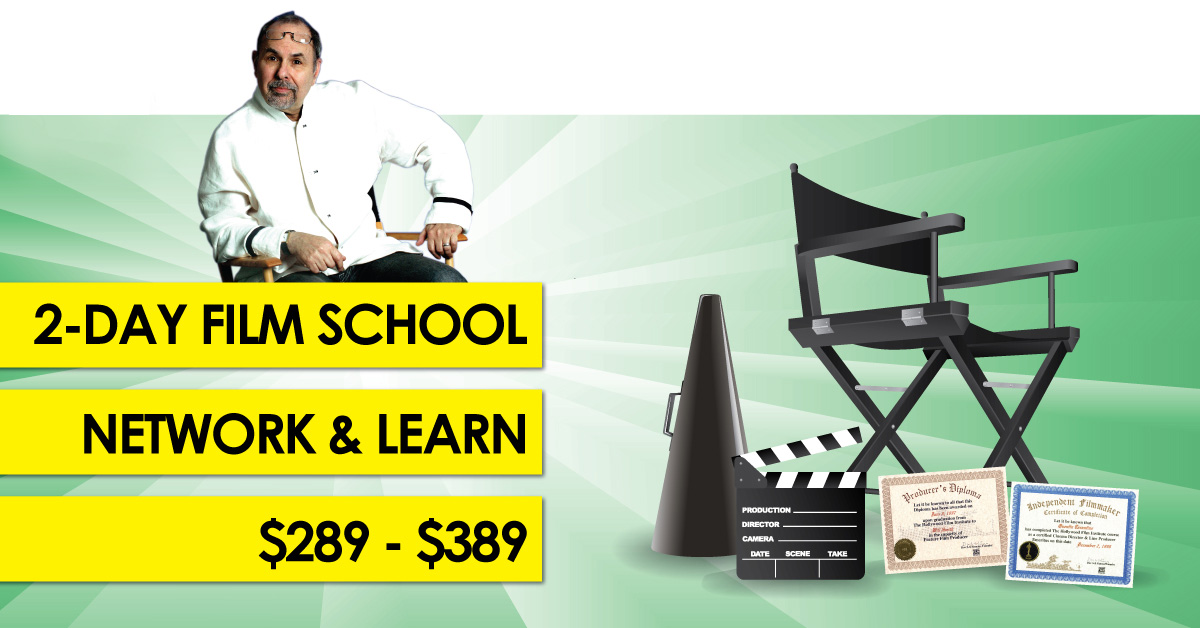

that is great copy, which sold me the film school; and moved me to action to finally do it.
clicked on the link to order at the bottom of the essay
all i saw was a big version of the image
the links on the right went to cinev but the page did not show anything
clicking on what looked like an icon placeholder it tried to rent the course
and say it had no reviews yet
I’m so happy you’re back. Missed your posts!
This 2-day film school was the best investment I ever made. Since then, I have produced, written, directed or worked on dozens of film projects. Dov S’simens opened the door to my “real” profession.
Embracing the 2 day methods practical approach seems like a cost effective and efficient way to dive into directing. Focusing on nuts and bolts skills can be a game changer for aspiring filmmakers aiming to produce their first feature film.
Professional Home Extension Services in Boisbriand Quebec